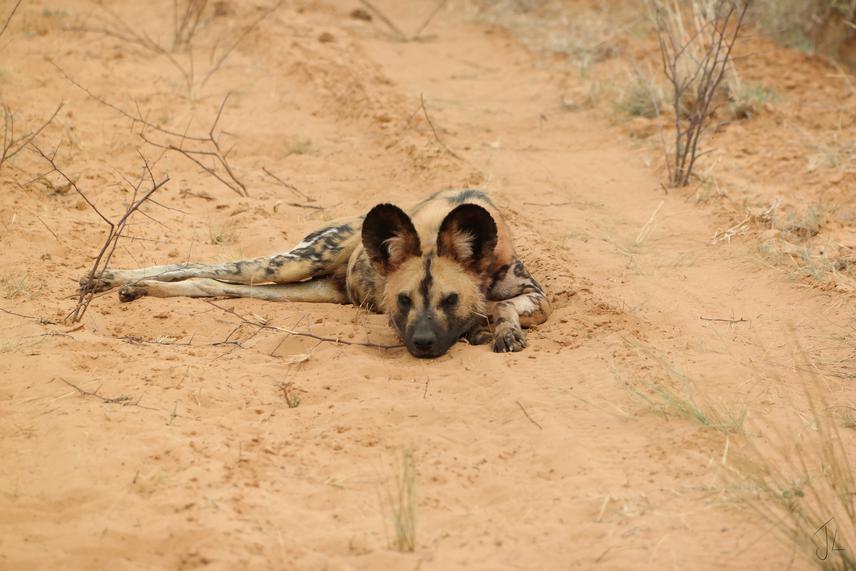Jennifer Linden
The African wild dog (Lycaon pictus) is among the world’s most endangered large carnivores, with a dramatically reduced range covering just 7% of the species historic distribution. Recent research has shown that high temperatures are associated with detrimental impacts on wild dog reproduction and survival. As the climate warms, it is predicted that these impacts will cause declines in wild dog populations, compounding existing threats and increasing the species’ risk of extinction. As an emerging threat to the species, no research has yet been undertaken on climate change mitigation strategies for the African wild dog.

“Blondie” - adult male African wild dog of the !Khamab North Pack in the Kalahari Desert. © Jennifer Linden.
This project aims to begin to fill this gap, by seeking to understand how management intervention options can facilitate wild dog persistence in an increasingly extreme climate, with reference to shade provisioning, prey stocking, artificial water provisioning, and game fencing. This will be achieved through monitoring of wild dog packs using bespoke biologging collars in the South African Kalahari Desert, an area lying at the margins of wild dog range and representing the hotter, drier conditions projected to expand across Southern Africa in the future. Working with a local NGO and reserve management, this research will inform conservation action by producing management recommendations for wild dog conservation in a warming climate across the species’ range.
Header: African wild dog pups of the !Khamab South Pack in the Kalahari Desert. © Jennifer Linden.